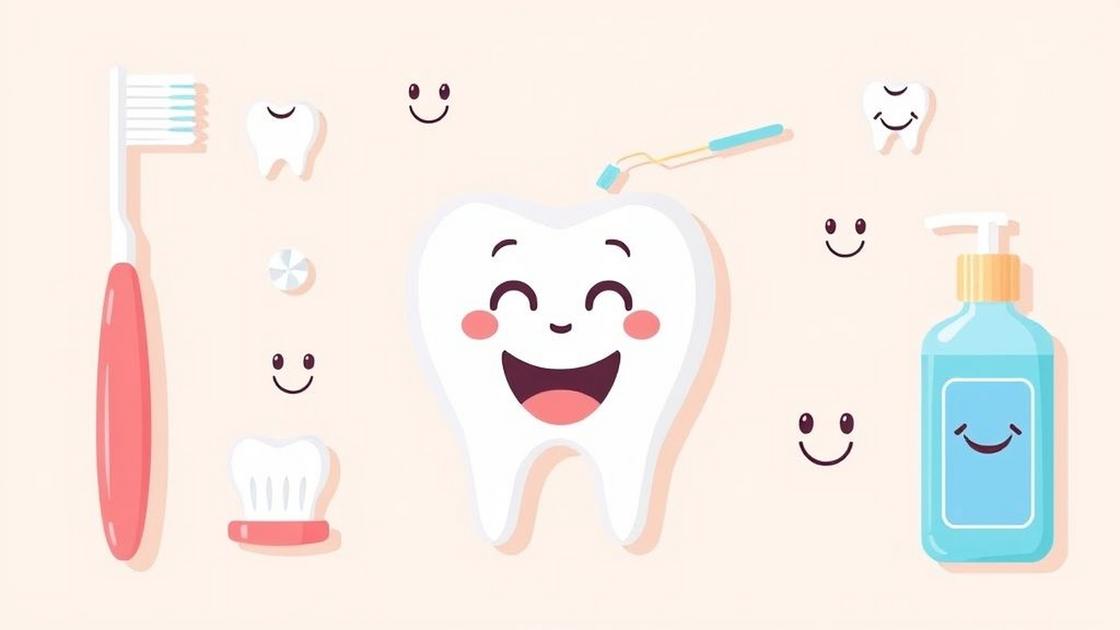Are you struggling with tooth decay and looking for home remedies? You’re not alone. Many women, especially those over 30, face the challenges of maintaining oral health amidst busy schedules and lifestyle changes. This journey towards healthier teeth can feel overwhelming, but it doesn’t have to be! With the right information and natural solutions, you can effectively fight tooth decay and restore your smile. In this article, we’ll explore some easy and effective methods you can try at home.
Understanding Tooth Decay: What You Need to Know
Tooth decay is a common dental issue caused by a range of factors, including dental plaque, bacteria, and poor dietary choices. It occurs when the hard surface of your teeth—the enamel—starts to break down. As we age, our teeth might face additional challenges, leading to an increased risk of decay. Understanding how tooth decay develops is crucial for prevention and management.
Tooth decay begins with the buildup of plaque, a sticky film of bacteria that forms on your teeth. When you consume sugary foods or beverages, the bacteria in plaque feed on these sugars and produce acids that attack tooth enamel. Over time, these acids can create cavities, which may lead to more serious dental issues if left untreated.
Why Women Over 30 Might Face Tooth Decay
As women enter their 30s, they may experience various hormonal changes that can affect oral health. Fluctuating estrogen levels can lead to dry mouth, which reduces saliva production. Saliva is crucial for neutralizing acids and washing away food particles. A decrease in saliva means higher risks for tooth decay.
Moreover, life stressors such as balancing career, family, and personal life may lead to neglecting oral hygiene. Another important factor is the dietary habits that might change as we juggle busy schedules. Incorporating convenient snacks often means resorting to sugary options, further increasing the risk of decay.
Natural Remedies: Baking Soda and Its Benefits
Baking soda is a well-known natural remedy that can help combat tooth decay. Its gentle abrasive properties can help remove plaque without damaging enamel. Additionally, baking soda can neutralize acids in the mouth, reducing the risk of cavities.
To use baking soda, mix one tablespoon with water to create a paste. Gently brush your teeth with the paste once or twice a week. Just remember to complement this remedy with regular fluoride toothpaste to ensure comprehensive oral care.
The Power of Oil Pulling for Oral Health
Oil pulling is an ancient practice that involves swishing oil in your mouth to improve oral health. Common oils used are coconut, sesame, or sunflower oil. This method can help in reducing bacteria and plaque in the mouth, potentially preventing tooth decay.
To try oil pulling, take one tablespoon of oil and swish it around in your mouth for about 15-20 minutes. Spit it out, and rinse your mouth with warm water. This simple practice can make a significant difference in maintaining oral health and reducing decay.
Herbs and Natural Ingredients to Combat Decay
Several herbs and natural ingredients can act as effective remedies for tooth decay:
- Neem: Known for its antibacterial properties, neem can help fight bacteria that cause plaque and decay.
- Clove Oil: Clove oil is a natural analgesic that can provide temporary relief from tooth pain while its antibacterial properties help in preventing decay.
- Green Tea: Rich in antioxidants, green tea can help reduce inflammation and bacteria in the mouth.
Incorporating these herbs into your dental care routine may aid in fighting decay and promoting overall oral health.
Diet Changes That Can Save Your Teeth
Your diet plays a pivotal role in your oral health. Making intentional dietary choices can significantly reduce your risks of tooth decay. Here are some tips to consider:
- Limit Sugary Foods: Try to minimize the consumption of candy, sodas, and other sugary snacks.
- Incorporate Crunchy Fruits and Vegetables: Foods like apples and carrots help naturally clean teeth.
- Consume Dairy Products: Foods high in calcium, such as yogurt and cheese, can strengthen teeth and bones.
- Stay Hydrated: Drinking water, especially fluoridated water, helps wash away food particles and bacteria.
Simple changes in your eating habits can make a world of difference in maintaining the wellbeing of your teeth.
How to Use Aloe Vera for Healthy Gums
Aloe vera is not just a soothing agent for skin; it has numerous benefits for oral health too. Its anti-inflammatory and antimicrobial properties make it an excellent natural remedy for gum health.
You can use fresh aloe vera gel, applying it directly on your gums. Gently massage it into the gum line for a minute or two. Rinse your mouth afterward. This can help soothe irritated gums and combat plaque buildup.
The Role of Fluoride: Natural vs. Chemical
Fluoride is a mineral that helps rebuild and strengthen tooth enamel, making it essential in the fight against tooth decay. There is a debate regarding the use of natural versus chemical fluoride. Natural fluoride occurs in certain water sources and dental products, while synthetic fluoride is added to drinking water and toothpaste.
While both forms provide benefits, using fluoride toothpaste is a simple and effective way to help prevent decay. If you prefer a natural approach, look for toothpaste brands that use natural fluoride sources, ensuring you’re getting the protection you need.
Daily Habits to Prevent Tooth Decay at Home
Incorporating daily habits into your routine can significantly help prevent tooth decay:
- Brush Twice a Day: Use fluoride toothpaste and brush for at least two minutes.
- Floss Daily: Flossing removes food particles and plaque from between teeth, an area your toothbrush can’t reach.
- Use Mouthwash: An antibacterial mouthwash can help control plaque and bacteria.
- Visit Your Dentist Regularly: Professional cleanings and check-ups are crucial for detecting potential issues early.
Building these habits can create a solid foundation for your oral health.
Embracing a Holistic Approach to Oral Care
Lastly, embracing a holistic approach to oral care means considering not only brushing and flossing but also diet, stress levels, and overall health. Stress management techniques such as yoga and meditation can enhance your wellbeing and, in turn, protect your teeth.
Integrating natural remedies, mindful eating, and a stress-free lifestyle can lead to significant improvements in your oral health. Know that by taking small, simple steps, you can effectively combat the challenges posed by tooth decay and enjoy a brighter, healthier smile. Many women like you have successfully transformed their oral care routines, and you can too! Discover this empowering journey to optimal dental health.






